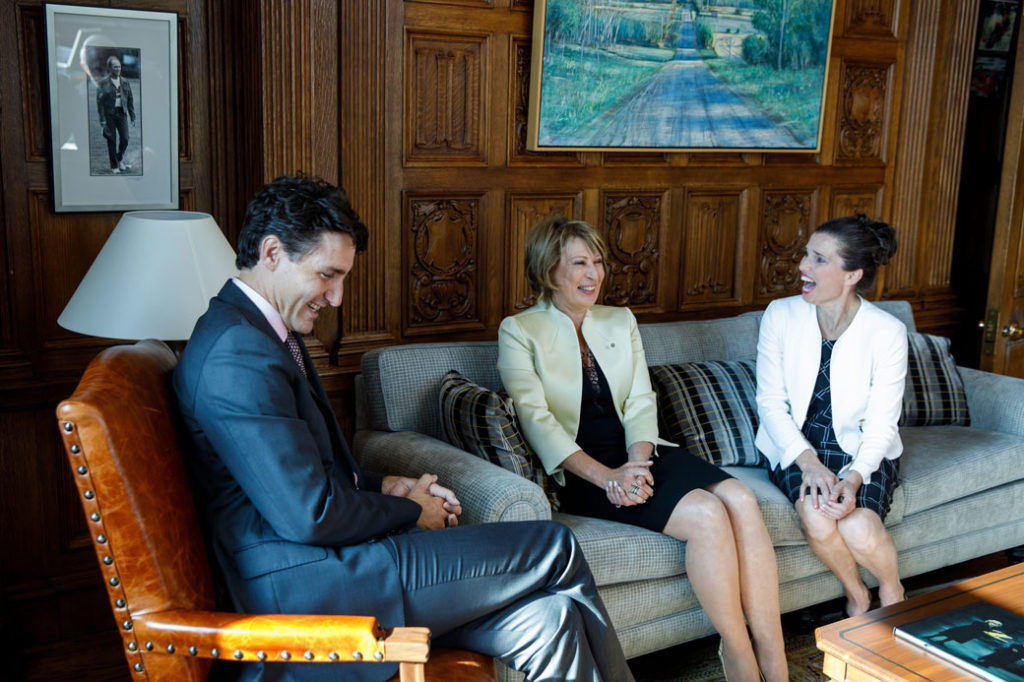Gender Equity in Science Comes to Montreal -- But Gaps Remain
By Paul Dufour
This week, the North American Gender Summit sponsored by NSERC and Quebec's Fonds de Recherche took place amid a growing renaissance on the gender and science policy issue. l'Oreal Canada and UNESCO hosted the 15th ceremony honouring research efforts of women in science from Quebec and Ontario. Since they were launched, 65 women from Canada have been recipients of this prestigious award, which also has a large international component. Canada's science minister was there along with other guests including the new French Ambassador to Canada, the president of the Canadian Commission to UNESCO's Natural, Social and Human Sciences Sectoral Commission and the federal government's Chief Science Advisor -- all women.
In her remarks, Minister Duncan underscored her activism when it comes to increasing the participation of girls and women in science and Indigenous knowledge. And she mentioned some encouraging signs on the equity front for Canada Research Chairs. Yet... the message has not translated fully within the country’s education and knowledge leadership. While we celebrated a Canadian Nobel recipient for Physics in 2015, in the history of these awards since 1901, there have been no Canadian female Nobel Laureates in the sciences.
 Prime Minister Justin Trudeau with Canada's new Chief Science Advisor, Dr. Mona Nemer, and Science Minister Kirsty Duncan at the official announcement in the House of Commons. Photo: Government of Canada
Prime Minister Justin Trudeau with Canada's new Chief Science Advisor, Dr. Mona Nemer, and Science Minister Kirsty Duncan at the official announcement in the House of Commons. Photo: Government of Canada
According to a 2014 CCA report, Canada is missing out on an important supply of skilled talent. Increasing the STEM participation of under-represented populations, including women and Aboriginal peoples, is an important strategy for diversifying the supply of STEM-skilled individuals. Just 29.6% of individuals with post-secondary STEM credentials and 26.9% of those employed in STEM-intensive occupations in Canada are women.
To be sure, there are a number of organizations promoting and empowering women in knowledge sectors. Today, media in all forms have a strong role to play in promoting a fairer science in Canada—science blogging and journalism about and by women are on the increase as are narratives detailing the power and passion of the sciences and research (in all disciplines) that are making a difference.
The private sector has a responsibility as well and needs to step up and do more in its hiring practices including support for women in the form of training, access to finance and backing for entrepreneurship—women hold only 8.5 per cent of the highest-paid CEO positions in Canada’s top 100 listed companies. Signals to society from our science and innovation leaders matter: for example the PM’s annual Awards for Teaching Excellence and Early Childhood Education underscore the gender issues.
As we discuss a more gender-neutral national anthem and advocate for more women on our currency, we should not forget the critical contributions of our pioneers along with the next generation of girls and women in shaping our knowledge-based society.
| Same Fast Facts about Women in STEM and Business |
|
> In the history of the Nobel awards since 1901, there have been no Canadian female Nobel Laureates in the sciences > Just 29.6% of individuals with post-secondary STEM credentials and 26.9% of those employed in STEM-intensive occupations in Canada are women > Women hold only 8.5% of the highest-paid CEO positions in Canada's top 100 listed companies > In North America, women only receive 4% of venture capital funding; this number drops to 0.2% for women of colour > Women are starting businesses at 1.5 times the pace of men > A recent McKinsey Global Institute report found that $12 trillion could be added to global GDP by 2025 by advancing women's equality. |
This article is part of a guest columnist series entitled Fast Policy Facts by Paul Dufour.
| People: | |
| Topics: |
Events For Leaders in
Science, Tech, Innovation, and Policy
Discuss and learn from those in the know at our virtual and in-person events.
See Upcoming Events
You have 0 free articles remaining.
Don't miss out - start your free trial today.
Start your FREE trial Already a member? Log in
By using this website, you agree to our use of cookies. We use cookies to provide you with a great experience and to help our website run effectively in accordance with our Privacy Policy and Terms of Service.





